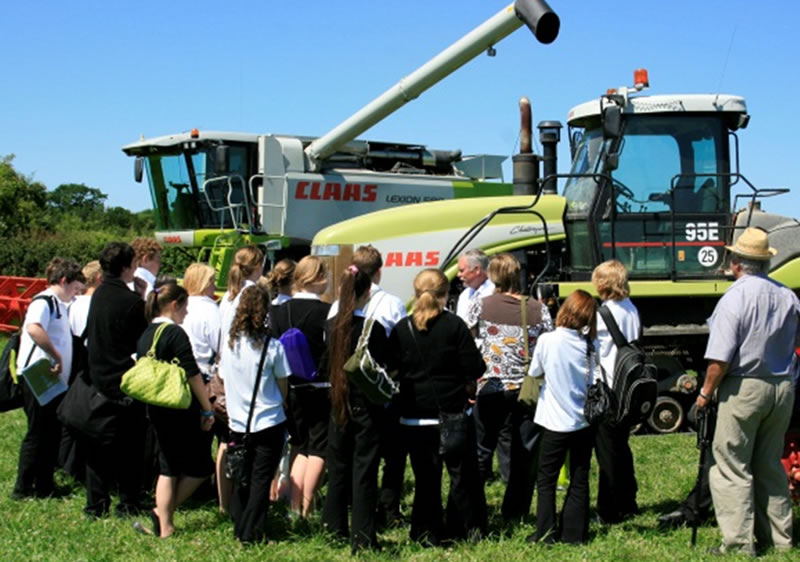
The local agricultural community is coming together for another popular Food and Farming Student Day event at Hollow Trees Farm, Suffolk, on 20th June. Farmers and food producers from across the region will be turning their hands to teaching as part of the quest to increase knowledge about farming and food production among young people. The schools’ event is aimed at inspiring teenagers about the agriculture and food industry; to give them insight into one of Suffolk’s biggest business sectors; and to influence career choices among the very best of them.
Hosted by Hollow Trees Farm and jointly organised with Suffolk Education Business Partnership, The Suffolk Agricultural Association and Otley College, the event is made possible by a grant fund from Chadacre Agricultural Trust. Chadacre has a long history of supporting the education of young people and the general public in all aspects of agriculture and research.
“We are delighted to support the Food and Farming Student Day,” says Lord Iveagh from the Chadacre Agricultural Trust. “Despite the fact that Suffolk is so rural, there are still lots of children and students who have little idea about what goes on in the countryside and how the food on their plates has been farmed, processed, packaged, distributed and marketed. Anything that Chadacre Agricultural Trust can do to raise awareness of this exciting and vital part of the economy will help the farming and the food industry in the future.”
The Chadacre Agricultural Trust also supports other educational based learning projects, work experience placements and jobs. Helen Walker, whose role as Schools Farming Liaison Co-ordinator for Otley College is joint funded by the Chadacre Agricultural Trust and the Felix Cobbold Trust, is developing a new Agricultural Development Scheme which will give students hands on experience of the Agricultural industry.
Helen explains, “The Food and Farming Student day is one of Otley College’s most important events in the year. It shows 14 to 16 year olds and teachers why farming is so crucial for food production and related businesses and highlights what exciting careers there are on offer. Just as importantly, it engages the agricultural community in an important communications exercise: one that captures imaginations; that helps us engage with the non- farming community; and that helps influence the support of the next generation of consumers and the policies of the next generations of legislators.”
